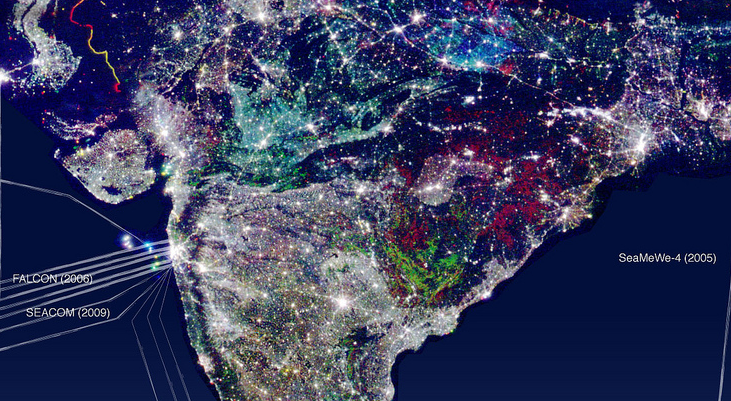2 Jul 2013 | Volume 42.02 Summer 2013
The current issue of Index on Censorship magazine features a special report on the shifting world power balance and the implications for freedom of expression.
“The multipolar world can be one where universal human rights and freedom of expression are kept firmly on the agenda, and increasingly respected, if these democracies hold themselves and each other to account — and are held to account — at home and internationally,” write Index CEO Kirsty Hughes and London School of Economics professor Saul Estrin.
The issue also looks at press freedom in Italy, Burma, Mexico, Columbia and India as well as violence against journalists and arrests of those who expose uncomfortable truths. “Worldwide, on average only one in ten cases of murders of journalists ends in a conviction,” says Guy Berger, author of an article on the threats and dangers journalists encounter around the world. Instead of being reassured that the rule of law will be upheld, “the take-away lesson for everyone is: journalists can be killed with impunity”.
From the current issue
Global view: Who has freedom of expression? | The multipolar challenge to free expression | Censorship: The problem child of Burma’s dictatorship | News in monochrome: Journalism in India
Also in this issue:
- John Lloyd on how party politics have skewed Italian journalism
- Yavuz Baydar says Turkey’s media moguls must defend free speech
- Htoo Lwin Myo tells what was it is like to work as a writer in Burma
- Bharat Bhushan on “paid-for” news and the absence of marginal voices in the Indian media
- Lawrence Freedman and Benedict Wilkinson on the opportunities — and limits — of online activism
- A new play from Turkmenistani writer-in-exile Farid Tukhbatullin, whose wit offers a glimpse of life inside one of the world’s most closed and repressive countries.
- Find out more here | Subscribe now
Did you know you can read the magazine on your iPhone/iPad? Download for FREE then upgrade to a 30 day subscription for only £1.79.
4 Jun 2013 | India
Recent decisions by India’s Ministry of Information and Broadcasting have raised questions about the country’s approach to broadcasting regulation. Mahima Kaul reports

Comedy Central ran afoul of India’s Ministry of Information for broadcasting content considered obscene.
Both Comedy Central India and Fashion TV were slapped with 10-day suspension notices for violating the Cable Television Networks Regulation Act, 1995. The reasons for the ban – listed in a detailed letter by a ministry official – included offending good taste, obscenity, injuring public morality and denigrating women.
Two Comedy Central programs in particular drew the government action. French prank show, Popcorn, and a stand-up comedy showcase. The French program featured simulated sex with a dummy. The suspension began on 25 May and was appealed by the station’s operator, joint venture Viacom 18 Media. The ban was initially upheld, but lift after a second appeal on 28 May.
Fashion TV drew a 10-day ban after it aired obscene content that included models in lingerie with their buttocks fully exposed.
In appealing its ban, Comedy Central pointed out it is a niche channel catering to a sliver of the English speaking public in India. The broadcaster believes that its viewers will not be offended by the programming it airs.
The government says it is trying to walk a fine line between freedom of expression and vulgarity. Finding that line is difficult in a country that has gone so far as to ban mannequins dressed in underwear in Mumbai shops because the displays lead to a “pollution of minds in today’s generation.”
India’s broadcasters see self-regulation as the way forward, and as a result, interference from the government is met with a harsh backlash. Currently, public complaints against general entertainment channels are funneled to the channels through avenues such as the industry-led Broadcast Content Complaints Council. In fact, the BCCC has a list of published “self-regulation guidelines” on its site which are open to the public. The list of topics that people can complain includes kissing, nudity and sex. In fact, a look at BCCC’s action-taken documents show the body has evenly protected channels as much as it has taken them to task for their content. This includes Comedy Central in the past. However, experts believe that the body has been lenient on its members because their interest lies in letting their programming go unopposed — as it stands today. Self regulation in India is under scrutiny, with even the judiciary asking the BCCC to pull up its socks in the past.
In the present case of the Comedy Central ban, the government had issued a notice to Comedy Central last June to which the channel responded a month later, saying it had taken a “serious note of all concerns”. However, with repeated offenses, an Inter-Ministerial Committee decided to impose the ban as punishment. The government believes the channel has failed to self regulate and follow applicable programme codes, and therefore the penalty must be imposed.
Comedy Central believes the government should have gone through the BCCC instead of direct action from the ministry.
Three things emerge in this case. The first is that the nature of the complaints as well as the public backlash at any action against channels reveals the very contradictory nature of India’s viewing public right now. The second is that if, as most channels agree, self-regulation is the best way forward, then the government might want to rely on the industry for disciplinary action, even though it has the power to impose bans. The third is that the industry should hear the government loud and clear: if self regulation is not working, it intends to step in.
21 May 2013 | Asia and Pacific, Digital Freedom
The Indian government has been implementing a system to track and access calls, texts, and online activities. Mahima Kaul reports from Delhi that the Central Monitoring System (CMS) will be used by tax authorities and India’s National Investigation Authority to fight terror-related crimes.
Opposition to the surveillance system have now launched an online petition against it. Opponents say that while the system can be used to halt terror attacks and other violence, the government will primarily use it to police hate speech and criticism of authorities. They point to the government’s track record of arresting its online critics under Section 66A of the IT Act.

As with any conversation on state policing, cyber terrorism and warfare, there is extreme nervousness about institutional frameworks, as they should be built for protection of civil liberties as much as for national security. India’s CMS was established in the aftermath of the 2008 terrorist attacks in Mumbai, and according to information released at the time its purpose was to provide “central and regional databases to help central and state-level enforcement agencies intercept and monitor communications” as well as “direct electronic provisioning of target numbers by government agencies without any intervention from telecom service providers.” The government is spending about $75 million to build the system. The minister for information and technology, Milind Deora, reassured the parliament that the system would “lawfully intercept Internet and phone services.”
This claim needs to be further examined. In India, phone tapping laws come under Section 5(2) of the Indian Telegraph Act 1885. It was amended in 2007 after a high profile court case giving only the Union and State Home Secretaries the power to order interception of any messages. However, given that communication has increasingly shifted online — including phone calls made via Skype and other VoIP mediums — this communication now comes under Section 69 of the Information Technology (Amendment) Act, 2008.
Commentators have pointed out that the broad powers included in the act — any government official or policeman can listen to phone calls, emails, SMSs without a warrant — are in clear violation of Article 21 of the Indian constitution, which states that “no person shall be deprived of his life or personal liberty except according to procedure established by law.” This means that the government has the power to easily violate a citizen’s guaranteed right to privacy — in the name of security.
There’s also another pressing question to consider when examining the CMS: who will oversee the body to ensure that there are checks and balances? Intelligence agencies don’t come under parliamentary oversight as of yet in India. A bill entitled Intelligence Services (Powers and Regulation) Bill, introduced in parliament in 2011 has been shelved by the Prime Minister, with the promise that a law would be formulated soon.
What seems to be a plausible way forward, given that India is building online surveillance mechanisms, is a valid legal framework for bodies like the CMS. The challenge is to ensure the citizen’s right to privacy as enshrined by the constitution is not trampled upon, and that accountability is built into these systems from the start.
13 May 2013 | Asia and Pacific
Election fever has completely gripped the Indian media. Though general elections are scheduled for 2014, the news cycle regularly carries rumours of early elections every time another corruption scandal breaks. Pundits, analysts and party spokespersons, appearing on television every night, attempt to connect with India’s growing middle classes. And a big topic of conversation: the potential for social media to become a game changer in the next election, Mahima Kaul reports from New Delhi.
India’s large population and increasing teledensity, especially in urban pockets, has spurred an impressive jump in the number of people online. Moreover, a recent report released by the Internet and Mobile Association of India and IRIS Knowledge Foundation has revealed that of India’s 543 constituences, 160 can be termed as ‘high impact’ — that is, they will most likely be influenced by social media in the next general elections. As the report explains, high impact constituencies are those where the numbers of Facebook users are more than the margin of victory of the winner in the last Lok Sabha election, or where Facebook users account for over 10% of the voting population. The study then goes onto declare 67 constituencies as medium-impact, 60 as low-impact and 256 as no-impact constituencies.
(more…)


